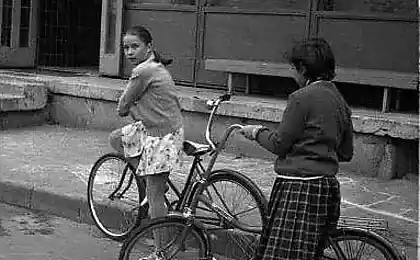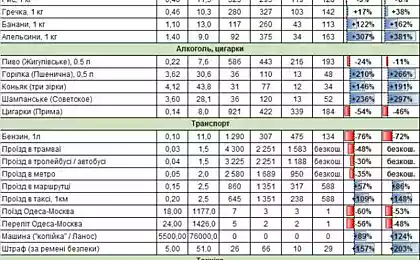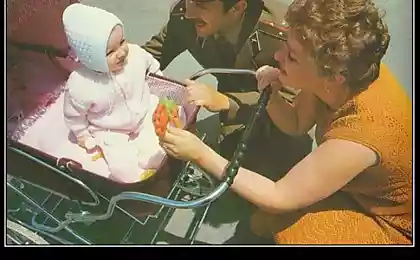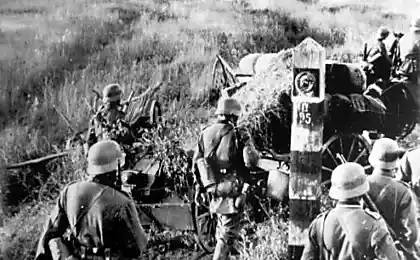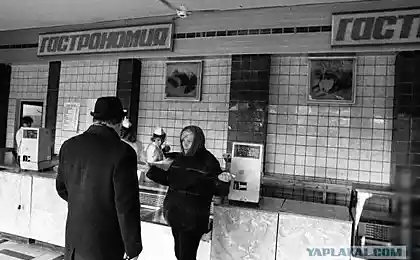183
What habits Soviet people still cannot give up and does it help them in life?
A person, without noticing it, acquires habits. Many of them are individual, but there are some that depend on the habitat. For example, immigrants from the Soviet Union are characterized only by their inherent habits. And do not assume that these are former habits that are left in the past. They are firmly entrenched in the subconscious and ready to manifest themselves at any moment.
By the way, do not treat habits reprehensible. Sometimes they're useful! However, it is advisable to analyze each habit to understand whether it is worth getting rid of or not.
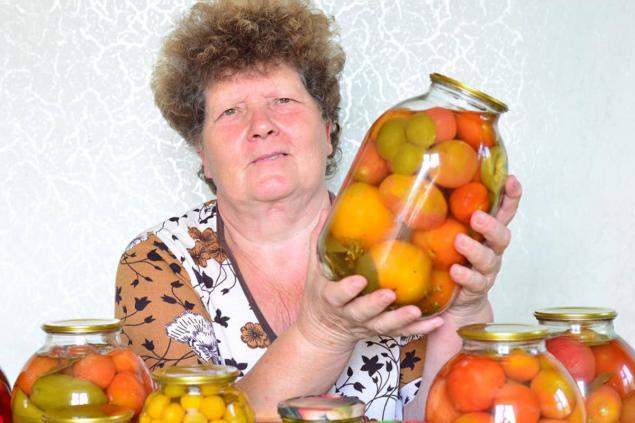
The habit of harvesting conservation did not come from a good life. Fresh vegetables in stores even in the harvest season did not look too attractive. In winter, only potatoes with cabbage and carrots with onions were sold. Factory preservation also did not please delicacies. So every hostess had to prepare for the winter and all summer pore over jams and pickled vegetables.
At present, this skill is useful only in anticipation of nuclear winter. In peacetime, it is easier to buy the necessary goods in the store. And often such a purchase will save not only invaluable time, but also money. Mass production is always more profitable than handicraft.

It would seem that after the USSR sunk into oblivion and shortage of goods. However, at the subconscious level, our people are ready to react immediately, only suspecting the approach of trouble.
At the first bells of danger, the chipmunk people pull bags of sugar, salt, cereal and sunflower oil into their burrow. Moreover, he is ready to extract all these reserves in battle, fighting with his neighbor in turn, which we saw in all its glory in March. The most interesting thing is that most people do not even think before buying, whether they need so much good. Everyone is eating sugar, so I have to do the same.
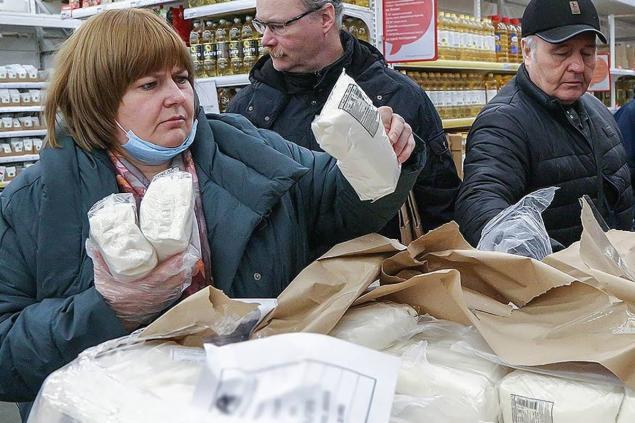
Another psychological legacy of total deficit. If a Soviet person sees a queue somewhere, he immediately asks who is the extreme in it. You can't have so many people crowding for something useless. You need to snatch a scarce thing thrown on the counter yourself, even if you have to sacrifice a few hours of time for this.
It seems that the love of queues is transmitted on a genetic level. After all, the last hamburger at McDonald’s crowded mostly young people. It would seem that it really matters when you ate the last Big Mac in your life. But the call of ancestors cannot be defeated by reasonable arguments. Got a line? Then you have to stand in it!
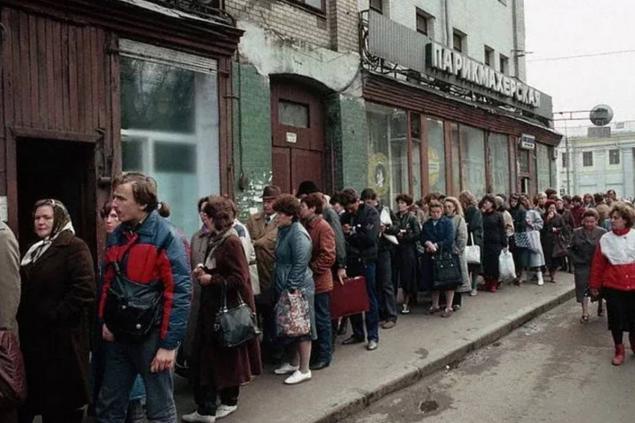
In the post-Soviet space, it is considered that a man should be able to do everything. Men try to match and to the last magic over the leaking crane, inventing incredible designs of wire and blue tape, just so as not to turn to the plumber and not to expose themselves as inept. In the journal "Science and Life" even conducted a constant rubric "Little tricks", in which readers shared tips on the household. Sometimes there were really good proposals. But many life hacks these days look wild.
For example, how do you advise replacing the respirator with a diving mask and a homemade hose made of paper and adhesive tape? And this despite the fact that the same respirators and gas masks were made by millions for the needs of the defense industry! But since the free sale of respirators was not available, citizens twisted out as they could. Smart is good, but why reinvent the wheel?
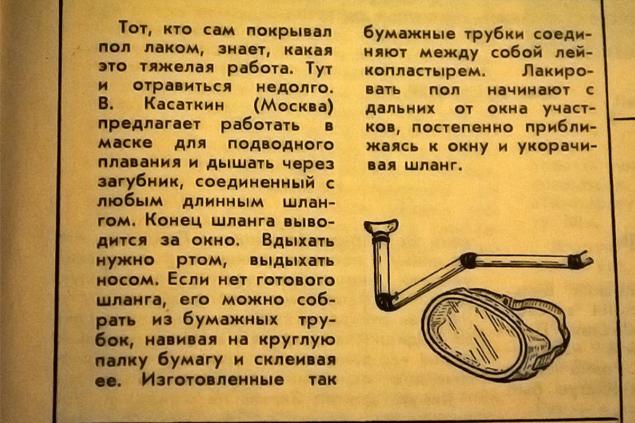
In many ways, glazing of balconies is a forced measure. Not everywhere the climate disposes to gatherings on an open loggia with a cup of coffee in his hands. There is nothing wrong with making your vacation spot comfortable in the cold. But many people glaze the balcony just because there was no shame in front of the neighbors. Look, I have money for extra Euro windows.
I wish the balconies had taste. So in most high-rise buildings, they simply turned into hinged sheds. Both inside and outside!

Because of the long distances, Soviet citizens had to spend a lot of time on trains. The food in the restaurant car was relatively expensive. And the contingent there was not always pleasant. Many people took food with them on the train.
Trains have become much faster, but the craving for food on the train has not gone away. Even if a person travels only a couple of hours, he will definitely decompose sandwiches in the placer card, boiled in steep eggs and chicken. This is at the level of Pavlov’s dog reflex. The train started, and the body began to produce gastric juice.
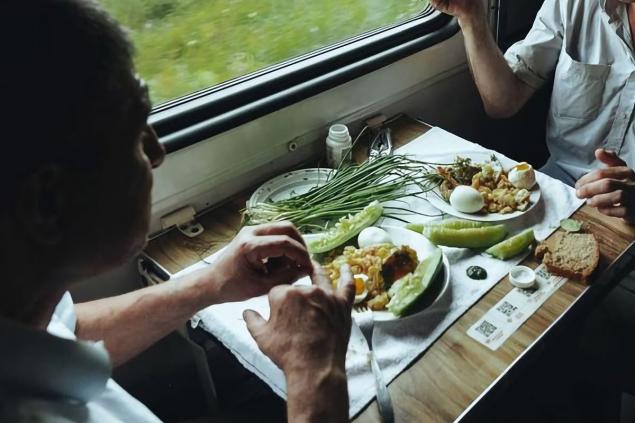
Although medicine was free, millions of people did not trust doctors and continue to do so. And half the trouble, when a person approximately knows what medicine he needs, and takes them at his own risk. But a lot of people believed in outright charlatanism. For example, in the healing power of water charged from the TV during the broadcast with Allan Chumak...
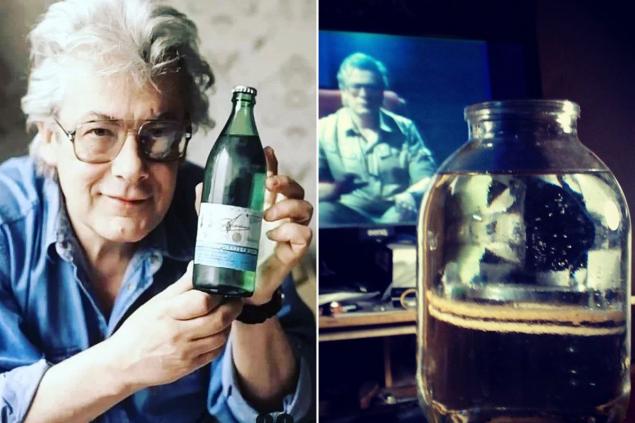
With habits you can fight, you can adapt them to your way of life. The main thing is that these very habits do not interfere with you or others.
By the way, do not treat habits reprehensible. Sometimes they're useful! However, it is advisable to analyze each habit to understand whether it is worth getting rid of or not.

The habit of harvesting conservation did not come from a good life. Fresh vegetables in stores even in the harvest season did not look too attractive. In winter, only potatoes with cabbage and carrots with onions were sold. Factory preservation also did not please delicacies. So every hostess had to prepare for the winter and all summer pore over jams and pickled vegetables.
At present, this skill is useful only in anticipation of nuclear winter. In peacetime, it is easier to buy the necessary goods in the store. And often such a purchase will save not only invaluable time, but also money. Mass production is always more profitable than handicraft.

It would seem that after the USSR sunk into oblivion and shortage of goods. However, at the subconscious level, our people are ready to react immediately, only suspecting the approach of trouble.
At the first bells of danger, the chipmunk people pull bags of sugar, salt, cereal and sunflower oil into their burrow. Moreover, he is ready to extract all these reserves in battle, fighting with his neighbor in turn, which we saw in all its glory in March. The most interesting thing is that most people do not even think before buying, whether they need so much good. Everyone is eating sugar, so I have to do the same.

Another psychological legacy of total deficit. If a Soviet person sees a queue somewhere, he immediately asks who is the extreme in it. You can't have so many people crowding for something useless. You need to snatch a scarce thing thrown on the counter yourself, even if you have to sacrifice a few hours of time for this.
It seems that the love of queues is transmitted on a genetic level. After all, the last hamburger at McDonald’s crowded mostly young people. It would seem that it really matters when you ate the last Big Mac in your life. But the call of ancestors cannot be defeated by reasonable arguments. Got a line? Then you have to stand in it!

In the post-Soviet space, it is considered that a man should be able to do everything. Men try to match and to the last magic over the leaking crane, inventing incredible designs of wire and blue tape, just so as not to turn to the plumber and not to expose themselves as inept. In the journal "Science and Life" even conducted a constant rubric "Little tricks", in which readers shared tips on the household. Sometimes there were really good proposals. But many life hacks these days look wild.
For example, how do you advise replacing the respirator with a diving mask and a homemade hose made of paper and adhesive tape? And this despite the fact that the same respirators and gas masks were made by millions for the needs of the defense industry! But since the free sale of respirators was not available, citizens twisted out as they could. Smart is good, but why reinvent the wheel?

In many ways, glazing of balconies is a forced measure. Not everywhere the climate disposes to gatherings on an open loggia with a cup of coffee in his hands. There is nothing wrong with making your vacation spot comfortable in the cold. But many people glaze the balcony just because there was no shame in front of the neighbors. Look, I have money for extra Euro windows.
I wish the balconies had taste. So in most high-rise buildings, they simply turned into hinged sheds. Both inside and outside!

Because of the long distances, Soviet citizens had to spend a lot of time on trains. The food in the restaurant car was relatively expensive. And the contingent there was not always pleasant. Many people took food with them on the train.
Trains have become much faster, but the craving for food on the train has not gone away. Even if a person travels only a couple of hours, he will definitely decompose sandwiches in the placer card, boiled in steep eggs and chicken. This is at the level of Pavlov’s dog reflex. The train started, and the body began to produce gastric juice.

Although medicine was free, millions of people did not trust doctors and continue to do so. And half the trouble, when a person approximately knows what medicine he needs, and takes them at his own risk. But a lot of people believed in outright charlatanism. For example, in the healing power of water charged from the TV during the broadcast with Allan Chumak...

With habits you can fight, you can adapt them to your way of life. The main thing is that these very habits do not interfere with you or others.
When I first gave this treat to the guests, they did not understand what it was from, showing the recipe.
People with certain habits are more likely to be successful, see if you have them.


